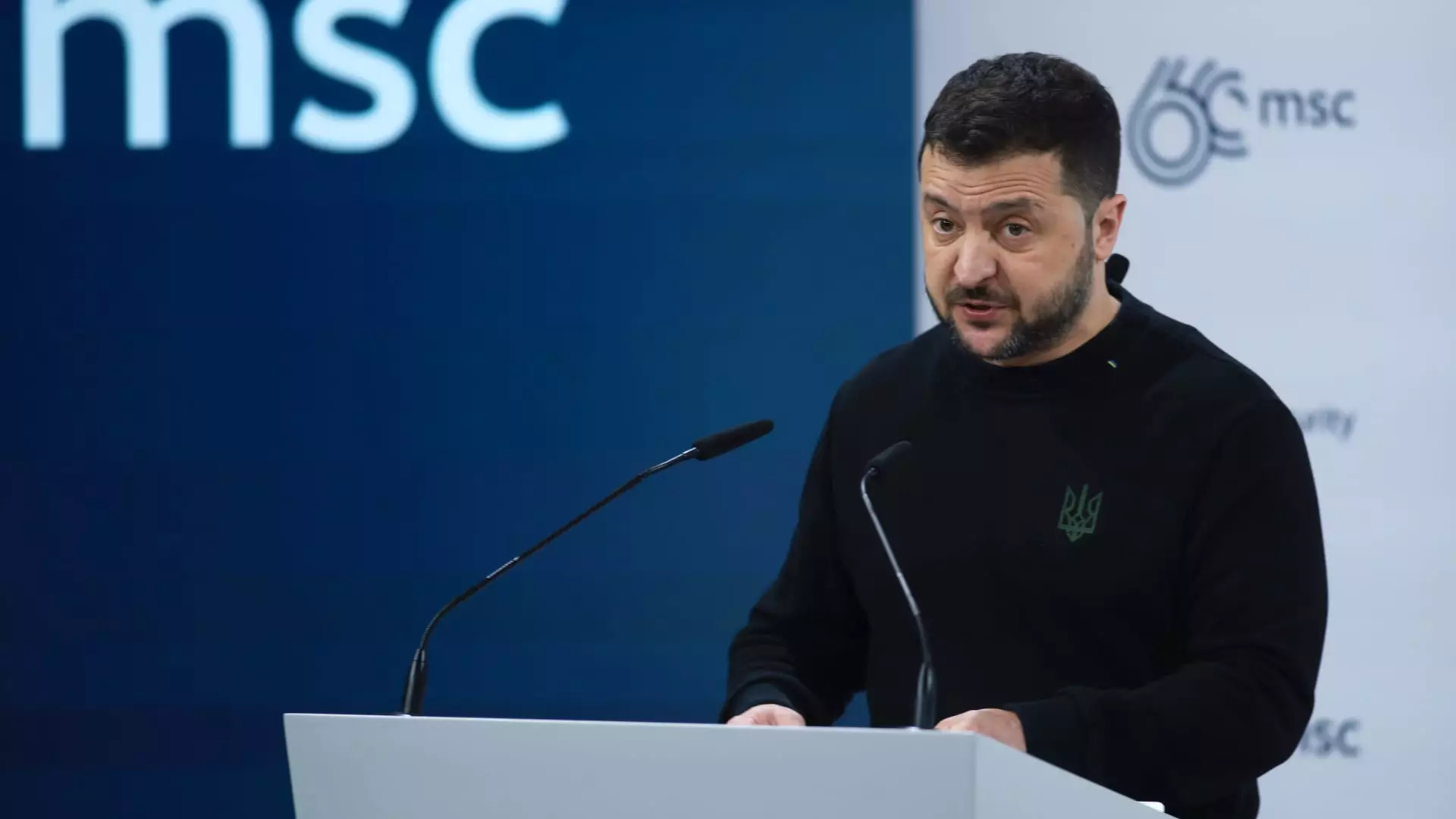Ukrainian President Volodymyr Zelenskyy made a bold statement at the Munich Security Conference, expressing his willingness to take U.S. presidential candidate Donald Trump to the front lines of Ukraine. Zelenskyy’s offer to accompany Trump to witness the impact of Russia’s invasion of Ukraine demonstrates a strong stance on the ongoing conflict. Despite Zelenskyy extending the invitation publicly, the decision ultimately rests with Trump and his team. The fact that the Trump campaign did not respond immediately to a request for comment highlights the uncertainty surrounding the potential visit and the complex diplomatic relations at play.
Trump’s historical skepticism towards U.S. support for Ukraine has been a point of contention, with the candidate even suggesting he would allow Russia to take over parts of Ukraine if re-elected. However, Trump’s recent comments at a campaign rally indicate a potential shift in his position. He pledged to do more to support Ukraine than incumbent President Joe Biden, a vocal advocate for funding Kyiv. This change in rhetoric comes on the heels of Russian President Vladimir Putin expressing a preference for Biden’s re-election, citing him as a “more predictable” leader. The evolving dynamics between the U.S., Russia, and Ukraine underscore the complexity of international relations and the impact of political rhetoric on foreign policy decisions.
The debate surrounding continued financial and military aid for Ukraine remains a contentious issue in the U.S. A recent $95 billion aid package, including a significant portion allocated for Ukraine, passed the Democrat-led Senate but awaits approval from the Republican-led House of Representatives. Zelenskyy emphasized the critical need for continued and increased support for Ukraine, framing it as essential not only for his country’s freedom but also for the stability of Europe and the broader global community. This call for support underscores the interconnectedness of international security and the implications of geopolitical decisions on regional stability.
Zelenskyy’s visit to Germany and meetings with German Chancellor Olaf Scholz and French President Emmanuel Macron signal a unified European response to Russian aggression in Ukraine. The signing of new bilateral security pacts reflects a commitment to bolstering Ukraine’s security in the face of external threats. The European Union’s approval of additional funding for Ukraine further demonstrates a collective effort to support Kyiv and counter Russian influence in the region. Zelenskyy’s strong stance against Russian President Putin’s tactics, including the reported murder of opposition leader Alexei Navalny, highlights the need for a coordinated response to human rights violations and political repression.
The reported death of Russian opposition leader Alexei Navalny in a Siberian penal colony has elicited a strong international response. Zelenskyy condemned Navalny’s death as murder, attributing it to Putin’s authoritarian regime that relies on corruption and violence to maintain power. World leaders, including U.S. President Joe Biden and European Commission President Ursula von der Leyen, expressed shock and sadness at the news. Navalny’s wife, Yulia Navalnaya, delivered a powerful speech at the Munich Security Conference, vowing that Putin and his associates would face consequences for their actions. The conflicting narratives from Russia’s Foreign Ministry and the Kremlin regarding Navalny’s death underscore the challenge of holding the Russian government accountable for human rights abuses and political repression.
President Zelenskyy’s speech at the Munich Security Conference highlighted the ongoing conflict in Ukraine, the importance of international support for Kyiv, and the broader implications of Russian aggression in Europe. The shifting dynamics in U.S. politics, European responses to Russian aggression, and the international outcry over Navalny’s reported death all underscore the complex geopolitical landscape and the challenges of upholding democratic values in the face of authoritarian threats. As the world grapples with these pressing issues, diplomatic engagement, multilateral cooperation, and human rights advocacy remain essential pillars of global peace and security.

Leave a Reply